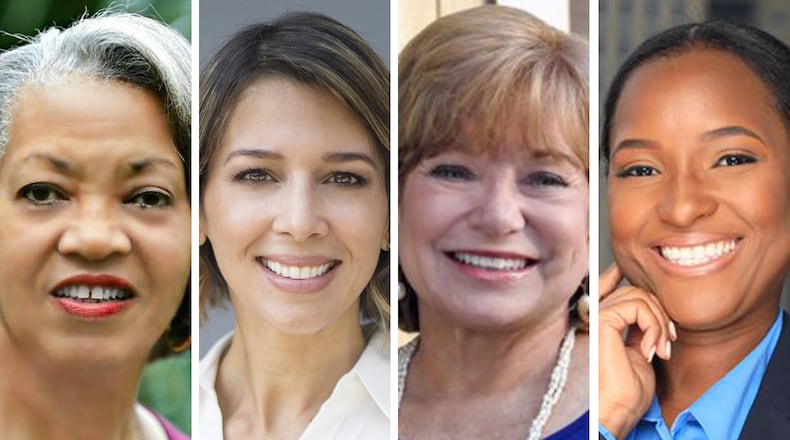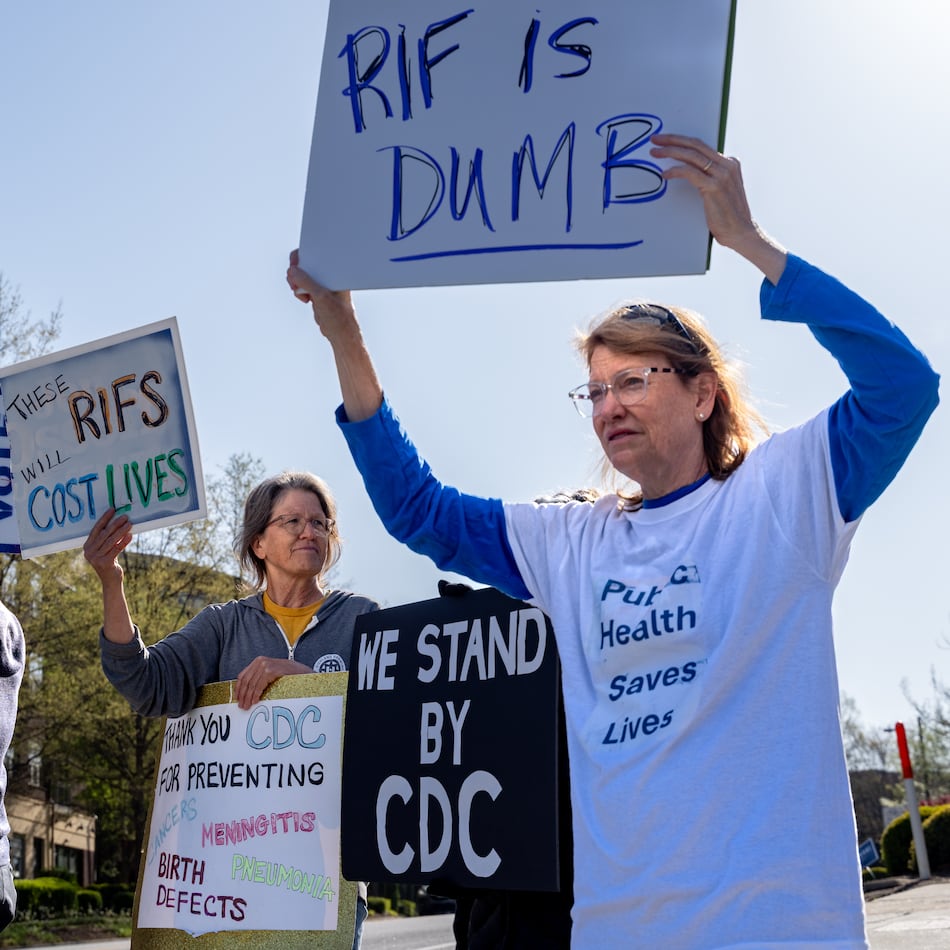When state Rep. Michele Henson was first elected in 1990, her House district looked vastly different than it does today.
For years, the longtime Stone Mountain Democratic lawmaker, who is white, has represented a district where black voters are the majority. About 29% of registered voters in the district are white.
This year, as the Democratic Party continues to push for diversity in its ranks, Henson is facing three women of color in the primary election.
LaDena Bolton, a forensic chemist and first-time candidate who is challenging Henson, said voters should consider the diversity of House District 86 when they cast their ballots in June.
“As communities change, the leadership should be representative of the changing community,” said Bolton, who is black. “DeKalb County is so much more diverse than it used to be with regards to ethnicity, economic status and education. Everything about DeKalb County is so much different than when she initially ran.”
Having gone through several rounds of U.S. census-driven redrawing of district lines, Henson said only about 10% of the district of about 42,000 registered voters is the same as when she was first elected.
But Henson pointed to her 40 years living in the area, saying she’s been actively involved with various Democratic Party groups and other civic organizations since moving to DeKalb after attending college in Miami.
“This is how I can get out and interact with the folks in the district and get to know their concerns and allow them to get to know me,” the Boston native said.
Institutional knowledge vs. a fresh take
Henson said she understands the value of having people with a variety of backgrounds in the General Assembly, but she said as the state deals with the long-term effects of the novel coronavirus, her expertise will be needed in the House.
With the stock market tanking, unemployment likely to at least temporarily soar and Georgians staying home as requested, state lawmakers are bracing for a drop in revenue in April and May — resulting in a need to make tough decisions about Georgia's budget.
“I have a good understanding of the (budget) system,” Henson said, pointing to her membership on the House’s budget panel. “I’ve been through several governors, and I’ve been through a recession. I understand and know the system, and I think you need a combination of both: You need folks with institutional knowledge and some people with new ideas.”
Zulma Lopez, an immigration attorney who is challenging Henson, acknowledged the veteran lawmaker's longevity in the Legislature but said that doesn't necessarily equate to leadership. Lopez, who owns her own practice, said running a small business has given her the skills needed to tackle the state's budget.
“I believe more than institutional knowledge, passing a balanced budget under these circumstances is going to require vision, creativity and experience doing with less,” said Lopez, who moved to the district from Puerto Rico in 2007. “Who knows this better than a small business owner?”
The pandemic has also changed the way candidates campaign. Instead of town halls, door-knocking and coffee meetings, candidates are relying on digital campaigning, mailers and phone calls.
“We’re doing the best we can,” Lopez said. “And it’s critical to reach out to actual voters that we know are going to vote in the race.”
As Democrats, all four candidates hold similar views on big issues: a stronger public school system, improving transportation infrastructure such as sidewalks and roads, and boosting economic development — especially along the Memorial Drive corridor.
A retired educator, Joscelyn O'Neil said she believes her work on the DeKalb County Commission's community council has given her experience that would help her use her position as a state lawmaker to identify and seek out businesses that should come to the district.
“In my community, you don’t see many family businesses here,” said O’Neil, a black woman who lives in the Greater Towers community in unincorporated DeKalb. “It’s diversified, but we just don’t have a lot of community-based businesses like home-owned businesses and small grocery stores. There’s a market for that here.”
A Tennessee native who moved to the district in 1989, this is O’Neil’s third time challenging Henson. Henson easily won with 72% of the vote in 2018. The incumbent beat O’Neil with nearly 76% of the vote in 2016.
Bolton said as a lifelong DeKalb resident, she wanted to give back to the community that raised her. To her, that starts with supporting law enforcement and reducing crime while making sure minority communities aren’t targeted.
“Unfortunately, the public safety officers are underpaid,” she said. “We need to invest more in the public safety system so they’ll feel appreciated so we can obtain and retain the best officers.”
Local governments fund and operate local police forces. State government and the General Assembly pay for the Georgia State Patrol and the GBI.
Lopez and Henson had far outraised the other two candidates in the race as of Jan. 31, the last filing deadline.
Lopez, a first-time candidate, reported having about $61,000 in the bank, with a bulk of her donations coming from fellow attorneys. Henson reported having almost $55,000 in campaign cash, with contributions from prominent Democrats including U.S. Senate candidate Sarah Riggs Amico and state Senate Minority Leader Steve Henson. The two are not related.
State law blocks legislators from raising money while the 2020 session is suspended due to the coronavirus pandemic.
Bolton reported having about $1,600 in her campaign account. O’Neil had not filed a campaign finance report as of Jan. 31.
After nearly 30 years in office, Henson said there’s more work to be done.
“I work with my constituents,” she said, “and I’ve also worked on behalf of my constituents and on behalf of the county.”
Audience specialist Isaac Sabetai contributed to this article.
About the Author
Keep Reading
The Latest
Featured



